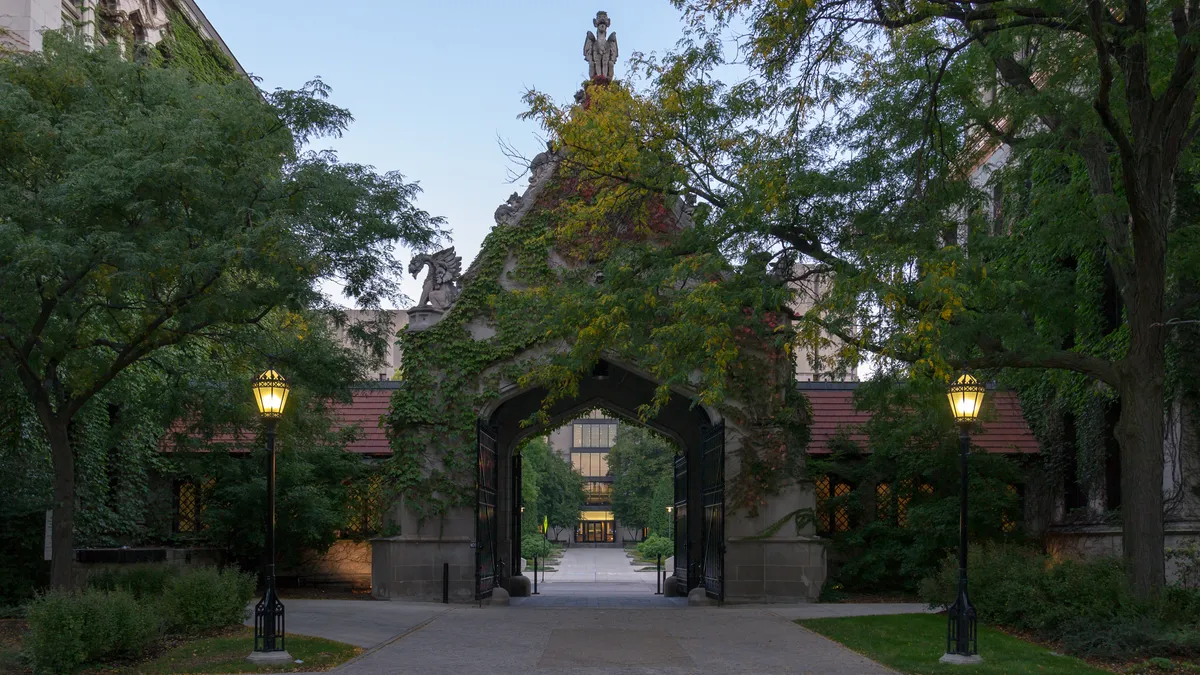Dive Brief:
- A number of institutions are exploring alternative options to maximize profit from campus bookstore space beyond the typical corporate leasing options, as recently detailed by University Business.
- While many campuses report inconsistency with corporate bookselling partnerships, some schools are creating dual partnerships for the separation of course material and university paraphernalia and interest items, such as Ohio University’s "Spirit Shop" retail division.
- Utilizing services that provide upfront costs and digital options for course materials are essential in maintaining a profitable bookselling enterprise on campus.
Dive Insight:
Textbooks are quickly becoming a relic of the college experience, but other areas of campus retail have preceded books in the move toward extinction, like CDs, DVDs and other items now widely available through streaming access.
To compete, campuses must now examine the value of smaller spaces that focus more on student needs beyond textbook purchasing, like sundries and clothing options beyond campus-branded items. In one instance, Milliken University's switch to selling campus merchandise and school supplies in its physical bookstore, with textbooks sold online via eCampus.com, actually bred an increase in sales. Meanwhile, campuses like UMass Lowell are converting former bookstore space for maker or entrepreneurial development in retail, such as areas for faculty and students to create and sell custom products to an immediate campus clientele — a move that could provide valuable real-world experience.







